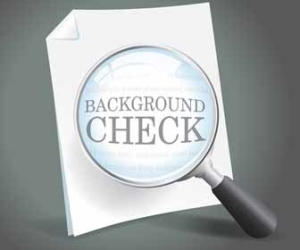What Every Employer Needs To Know About Background Checks
Do you run pre-employment background checks on job seekers who apply for jobs with your company? You should. Proper third party background checks can help your company eliminate dishonesty, financial penalties, violence, drugs, theft, terrible employees, and even potential lawsuits in the workplace. These are all things that a good employer wants to avoid.

Making the wrong hiring decision can be disastrous for your company. It’s your job as an HR professional to identify any red flags before you hire a new employee. The only way to be thorough and to do your job is to run pre-employment background checks.
Background checks consist of more than just calling references, screening resumes, verifying experience, and checking out a candidate on Google and social media. Background checks provide an in-depth look at a candidate’s background. It’s not cheap to run background checks on job candidates, but it’s a necessary investment in your company’s future.
Background reports for employment are regulated by the Federal Trade Commission (FTC). There are many laws that apply to background checks and employment discrimination. Consult your company’s legal team to make sure you are following any and all federal and state laws concerning background checks. And please avoid any illegal interview questions during the hiring process too!
In order to run a background check on an employee, you must have their written consent before you request a report. It’s smart to use a third party service to run the report. According to PrivacyRights.org, a background check can help you discover information like:
- Driving records
- Vehicle registration
- Credit records
- Criminal records
- Social Security no.
- Education records
- Court records
- Workers’ compensation
- Bankruptcy
- Character references
- Medical records
- Property ownership
- Military records
- State licensing records
- Drug test records
- Past employers
- Personal references
- Incarceration records
- Sex offender lists
As you can see, this may be valuable information that could be important in your hiring decision and your company’s long term success. Every company needs to determine what information they think is important. For example, a serious infraction on a driving record may be a deal breaker for an aspiring limo driver, but may not matter as much for a retail employee. It’s up to you and your company to choose what is important and what is not important for the job.
A red flag on a background check isn’t necessarily a deal breaker. Send a letter to the job candidate identifying any red flags and attach a full copy of the report. Always open up a discussion with the job seeker and ask for an explanation about the issue. There are always two sides to a story.
If you still feel that you need to eliminate a prospective candidate, take the proper steps to notify that candidate with an written letter that states the background check is the reason why you didn’t hire them.
Background reports are designed to help you make the right hiring decisions for your company. Without a proper background check, you are unable to get a full picture of an employee and therefore it’s hard to make an informed hiring decision. Run a background check on any candidate with a real shot of getting the job. It will provide a certain peace of mind that you’ve chosen the right person for the job.
It’s your responsibility to learn about and to follow any and all laws pertaining to background checks.

